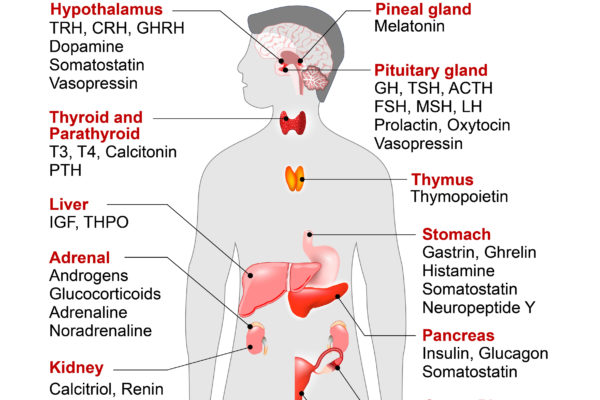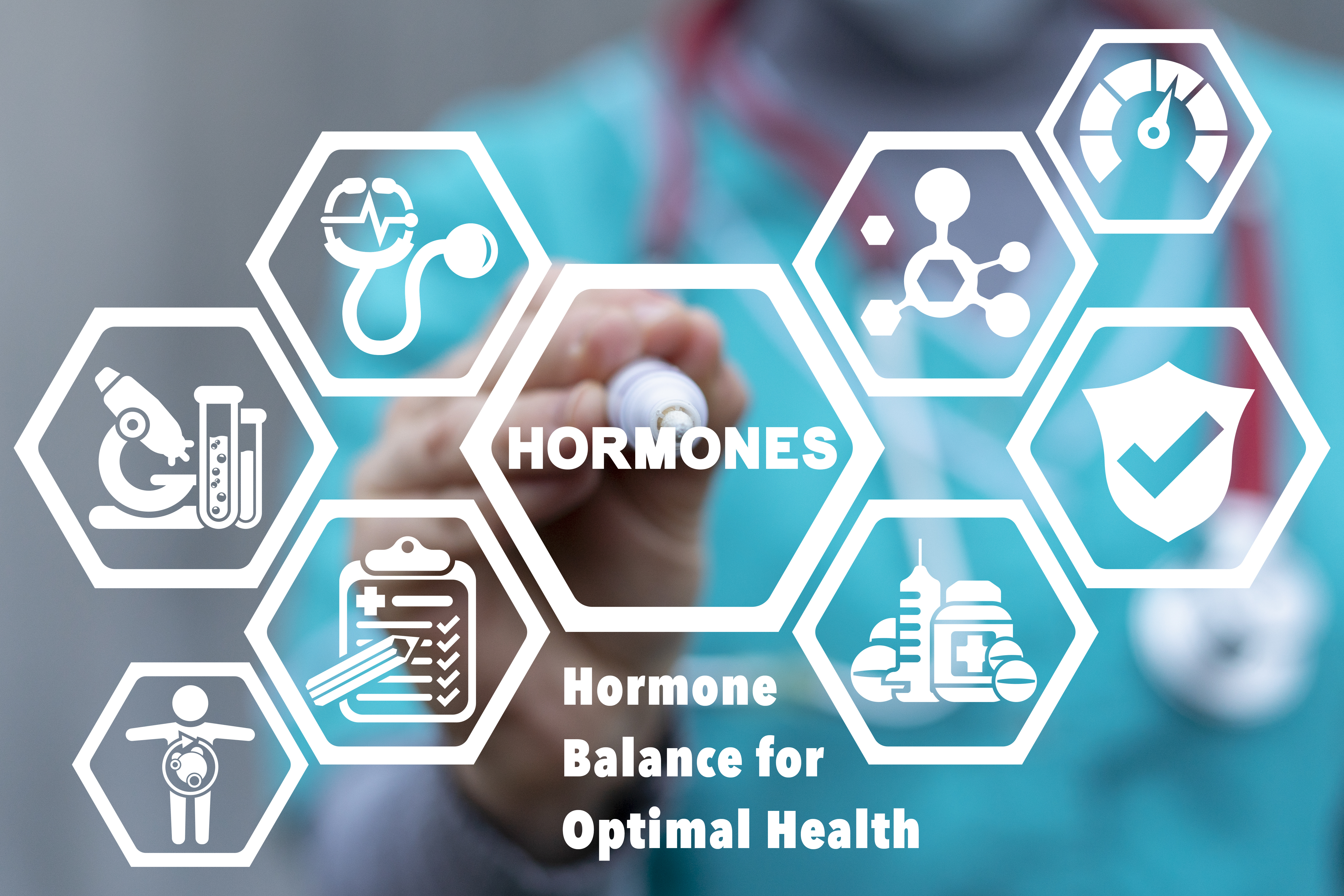We’ve all heard of hormones, but how familiar are we with what they are and how they actually work? Hormones are incredibly vital to our overall health, so understanding the role they play and taking steps to maintain good hormone balance can make a big difference in the way we feel!
Fortunately, achieving hormone optimization (if we’re feeling a bit off) is completely possible with just a few lifestyle adjustments - no pills or prescriptions required. Read further for the basics on how hormones work, what they control, and some tips for re-balancing them for optimal health.

How Hormones Work
With hormones, it all begins with our endocrine system. Our endocrine system is a complex network of hormone-releasing glands located throughout our entire body. The function of these glands is to release hormones that instruct specific parts of our body (like our brains, reproduction systems, and skin) with when and how to function.
Fully understanding the role of hormones starts with the glands. Several primary glands are responsible for releasing hormones that are vital to our health and well-being. Here’s a quick glance at what they are:
- Pituitary - This pea-sized gland at the base of your brain triggers growth and development and helps control all of the other glands.
- Hypothalamus - Second in command to the pituitary in the endocrine system, the hypothalamus releases several hormones that control overall mood, hunger, thirst, sleep, and more.
- Pineal - This gland detects light and darkness and releases melatonin, the hormone responsible for regulating your circadian rhythm and sleep.
- Adrenal - Adrenal glands produce hormones that help regulate your metabolism, immune system, blood pressure, response to stress and other essential functions.
- Ovaries/Testes - These glands control the release of estrogen and testosterone.
The hormones released from your glands are essentially your body’s chemical messengers. They deliver instructions through the bloodstream and ensure that everything in your body is working when and as it should.
Our body circulates around 50 different hormones that control a number of functions, including metabolism, reproduction, growth, mood, and sexual health. Here are some of the major hormones to know:
- Insulin - This fat-storage hormone is released by your pancreas and regulates many of your metabolic processes.
- Melatonin - This hormone controls our sleep cycles and circadian rhythms.
- Estrogen - Estrogen develops and maintains the female reproductive system and growth of female physical characteristics.
- Testosterone - Testosterone develops and maintains the male reproductive system and growth of male physical characteristics.
- Cortisol - This hormone signals stress in the body.
Balancing Hormones Naturally for Optimal Health
Stress, lack of sleep, and poor diet are just a few things that can impact our hormone balance and function. When we’re imbalanced, other areas of our lives, like our personal relationships, our careers, and our goals can become affected.
Imbalance can look different for each person, but a few warning signs can include feeling less energized or more irritable, having trouble concentrating or losing weight, and even hair loss.
Here’s the good news - optimizing your hormones naturally is completely do-able! Here are a few small things you can start improving today to get your endocrine system back in check:
- Improve sleep hygiene - Good sleep hygiene is crucial for your body’s ability to repair and restore itself. Metabolism, mood, and alertness are all driven by how much sleep you get (or don’t get!). If you’re not getting the recommended 8 hours each night, take steps to get more restful sleep. Prepare your bedroom so that it is calming, use a meditation app to wind down, or take a hot shower. This will help you to relax and ensure for a more restful night.
- Improve your diet - Eating the right mix of proteins, vegetables, fats, and fiber is important for maintaining our nutritional health. When we give our body the nutrients it needs, it is able to function better overall and maintain healthy energy levels for other things. Not eating enough of these foods can lead to nutritional deficiencies, which can affect your body’s energy levels, recovery systems, and of course, your hormones.
- Manage stress - Stress causes our adrenal glands to release cortisol into our bloodstream, signaling our body to enter into a ‘fight or flight’ response. This is a healthy reaction when we’re in imminent danger, but remaining in this state for an extended time can negatively impact our hormone balance.
If you’re stressed, take steps each day to reduce or eliminate those triggers. Exercising, walking outside, listening to music, and talking to a friend are some small things that can help keep your adrenal gland and cortisol levels balanced throughout the day.
Hormone Balance for Optimal Health
Achieving optimal health is a life-long journey. We’ll never be perfect, and of course we’ll experience moments in our lives when we slip up on our diet or sleep health. The important thing to know is that you can take small steps each day to get back on track if and when that happens. It’s all about knowing what you can do, and doing your best to integrate that into your lifestyle.
With the month of May wrapped up as Womens’ Health Month and June was Mens’ Health Month, now is the perfect time to start setting some hormone reset goals. If you’re an employer, contact us today to find out how you can better support your employees on their path to improved health.

